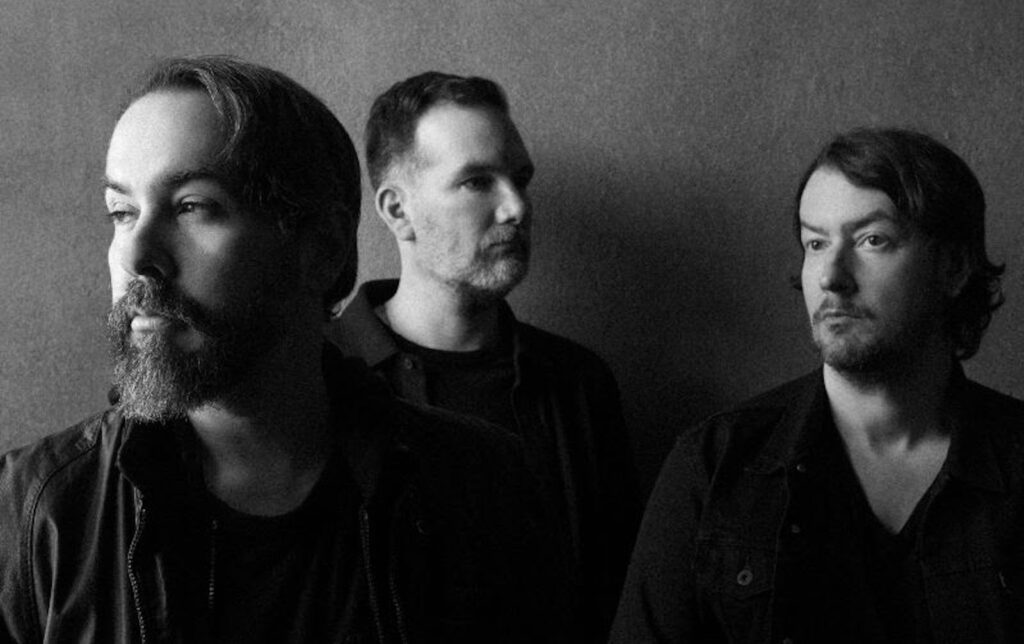“I love that description,” he laughs. “Although, I’d prefer that it’d been ‘weirdly exquisite’. We’re forever at odds. I think that’s what we do. It’s a constant in a forever changing world – the constant is in our difference.”
Clearly, Wild Beasts don’t shy away from oddity or difference. In fact, they frequently describe themselves as outsiders – it’s a point of pride.
Partly, they put this down to location. They formed in 2002 in Kendal, a far-flung, tiny farming community in England. Being so far from where it’s at creates a sense of isolation and distance. They’re as popular as fuck now though, so why does this sense of otherness persist?
“It’s because it’s strongly addictive,” Thorpe responds candidly. “It’s a galvanising tool. Also, it’s because we’ve not taken the typically careerist route – we’ve not gone to bed with industry. Our strength lies in the uniqueness of what we offer, not the similarities. People are drawn to us because we’re a bit left of centre, a bit bizarre, a bit more niche. All of my favourite bands were like that. Take The Smiths for instance; it was like being part of a complex members’ club if you got their humour, their quirks and irony.”
Thorpe is concerned that it’s becoming increasingly difficult, musically, for people to do their own thing. It’s not without precedent, but it’s rare. Take St Vincent…
“She’s a wonderful example of artistry and the ability to hold her own,” he says. “It can and does happen. It’s not an easy thing to do though and it’s certainly not as easy as it is to play by the rules. For every St Vincent, there are 10 who don’t make it.”
And, most certainly, Wild Beasts have made it. If it’s any indication, they’re just back from playing Glastonbury (again) and they’re about to embark on a pretty comprehensive world tour.
Achieving the level of success enjoyed by Wild Beasts doesn’t come without a price, though. “I guess I sacrificed normality from an early age,” Thorpe ponders. “I’m more interested in unpredictability and a visceral existence. I guess that’s not a sacrifice though – it’s been a blessing. For all its uncertainties, creative work is a privilege.”
In February, the band released Present Tense, its first album in three years. The band believes that music is supposed to be a response to the world. What were they responding to this time around?
“We’re responding to adult existence,” reflects Thorpe. “For anyone, it’s a bit of a head fuck. By nature, we questions things. That’s certainly the case for us coming out of our late 20s. I do think the way that our culture is now elongates youth. For those who are lucky enough, you can almost hitchhike your way to your mid 20s. Then, you hit some fall out. Where do I move? What do I do now? After Smother [the band’s 2011 album], we were finding our bearings again.”
This whole discussion has been a bit of a reflection on the passage of time and it leads back to where it all started. Doing things his own way is nothing new for Thorpe – it’s been a character trait since youth.
“My mother made me go to piano lessons from the age of seven,” he recalls. “I absolutely hated them. It was strict classical teaching and I hated it. I found a lot more joy in my own compositions, my own ideas. Playing them back was most rewarding.
“Then, as I got older, like any teenage boy, it was football or the guitar. I was way too skinny and wet to get too far with football. So, as skinny, wet boys are wont to do, I picked up the guitar, smoked weed and became introverted and, at some point, I emerged out of that as an adult.” Thank God for skinny boys and guitars.
BY MEG CRAWFORD







